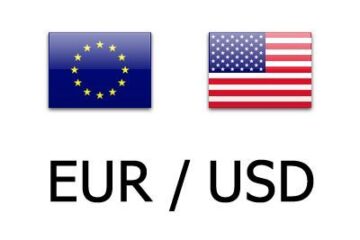frank peters – Fotolia
A $60m venture capital fund is set to invest in 120 early-stage startups across the Middle East region amid an anticipated tech boom after the Covid-19 pandemic.
According to the fund’s founders, an ex-Google executive and a Silicon Valley venture capital firm veteran, the Middle East is fast emerging as a key startup ecosystem, having seen several recent takeovers including the $3bn acquisition of ride-hailing app Careem by Uber in 2019 and e-commerce site Souq by Amazon in 2017.
Plus Venture Capital, as the fund is known, will have key operations based in Bahrain, with offices in Saudi Arabia, the UAE and Egypt. The firm will invest in tech and tech-enabled startups across all sectors, including fintech, healthtech, edutech, logistics, content and e-commerce.
According to Plus Venture Capital co-founder Hasan Haider, the global backdrop of the pandemic has allowed the firm to accelerate its plans rapidly. “Covid-19 caused a shift to take place in regional technology adoption,” he told Computer Weekly. “What we thought would happen over a three to five-year period happened almost overnight when the lockdown took place.
“People realised they needed to figure out ways to go about their day-to-day lives without meeting any human beings. Technology did very well during that period and continues to do well.”
Fellow co-founder Sharif El-Badawi said the pandemic had thrown up some “silver linings” for the Middle East’s technology industry. “The number of startups in the region that survived and thrived during this period is surprisingly high,” he said. “Around 70% of our companies were actually doing better during Covid-19 and the number of strugglers was much smaller, around 15%, which was surprising.”
El-Badawi predicts that regional tech entrepreneurs will become more resourceful and resilient following the learnings of the pandemic.
“They are going to be more conscious of their spending, focusing on cashflow and bottom-line numbers, rather than top-line vanity numbers, which a lot of people get carried away with,” he said.
“I’ve lived through the last two global recessions as an entrepreneur and investor. I’ve seen that tech comes out of these recessions really strong and with accelerated force. We hope this happens in this region, too.”
The Middle East region offers a young, highly connected market of more than 400 million people with similar cultures and languages. Although the market is still nascent, it is growing rapidly, with funding increasing year on year.
According to regional data platform MAGNiTT, despite the impact of Covid-19, more than $659m was invested in Middle East and North Africa (MENA)-based startups in the first half of 2020 – representing 95% of total venture investments in the previous year.
“The MENA startup scene, rather than being crushed by the pandemic, has bounced back with renewed vigour,” said Haider. “Money is flowing into the region at an unprecedented rate, but is still just barely keeping up with the pace of Middle Eastern innovation.
“Regional agile startups and entrepreneurs are racing to develop new technology that meets the fast-evolving consumer needs of the Covid-19 era.”
The tech veteran said governments rightly view startups as the region’s engine for sustainable growth and recovery in these unpredictable times and are providing the sector with record levels of support.
“There is still plenty of room for VCs to add to this and now is the time to do so,” he said. “We look forward to partnering with extraordinary and innovative entrepreneurs to help build successful businesses and contribute to a vibrant regional economy.”
Plus Venture Capital plans to invest aggressively in building a broadly diversified portfolio of seed-stage startups over the next three years.
“We’re actually pretty sector-agnostic – we will invest in any tech sector,” said Haider. “It’s pretty broad, which allows us to find outliers that might be ignored by other people.”
He added that the healthcare, fintech and edtech sectors, in particular, have benefited from increased adoption and investment since the pandemic began.
“We’re very interested in the ‘third wave’ of technology – which takes technology and applies it to incumbent industries that aren’t tech-enabled at all,” said Haider. “This Middle East region has a lot of that. Even e-commerce is still in the low single digits of adoption. The sky’s the limit.”
Haider also listed regtech, construction tech and proptech as developing areas of interest for regional investment. “The region has become very wealthy, but is still stuck in the 1980s in some respects,” he said. “It has a long way to go in terms of technology adoption and modernisation. Entrepreneurs are seeing the problems right in front of them and they’re trying to solve them.”
Wes Schwalje, COO of Dubai-headquartered research firm Tahseen Consulting, said funds like Plus Venture Capital view the pandemic as a “disruption” that could fuel innovation in adversity, which may increase venture capital returns.
Schwalje also noted that because Gulf governments and state-owned companies tend to drive regional tech innovation, an emerging issue is the potential for their technological leadership to crowd out private sector innovation.
“For example, there are a lot of telcos entering the payments space at the moment, and at the same time there are a number of fintechs emerging due to the opportunities in the space,” he said. “In such cases, what is the right balance in supporting well-capitalised legacy players in entering new growth markets while at the same time supporting startups?”
Western Australian aged care provider Juniper embarked on an aggressive strategy to completely transform its IT operations in just two years. This 1-page brief summarises how this overhaul has helped free up the resources needed to provide better quality of care for residents.
Companies need to work on ensuring their developers are satisfied with their jobs and how they’re treated, otherwise it’ll be …
Companies must balance customer needs against potential risks during software development to ensure they aren’t ignoring security…
With the right planning, leadership and skills, companies can use digital transformation to drive improved revenues and customer …
A security operations center can help lessen the fallout of a data breach, but its business benefits go much further than that. …
Remote browser isolation benefits end-user experience and an organization’s network security. Compare the pros, cons and cost …
Explore five SecOps certifications available to IT professionals looking to demonstrate and enhance their knowledge of threat …
Cisco DevNet certifications require a lot of time investment, but network pros who pursue the certifications say the gained …
Cloud automation use cases highlight the benefits these tools can provide to companies evaluating how best to manage and …
In this book excerpt, readers can explore the Cisco DEVASC 200-901 official guide and get a flavor of one of Cisco’s newest exams…
Finding the right server operating temperature can be tricky. ASHRAE standards provide guidance for all server classes and what …
These unexpected charges and fees can balloon colocation costs for enterprise IT organizations.
Off-site hardware upkeep can be tricky and time-consuming. With remote hands options, your admins can delegate routine …
Data management vendor Ataccama adds new automation features to its Gen2 platform to help organizations automatically discover …
IBM has a tuned-up version of Db2 planned, featuring a handful of AI and machine learning capabilities to make it easier for …
A database company founded by former Twitter engineers is pushing forward its vision of a way to consume database as a service …
All Rights Reserved, Copyright 2000 – 2020, TechTarget
Privacy Policy
Cookie Preferences
Do Not Sell My Personal Info


